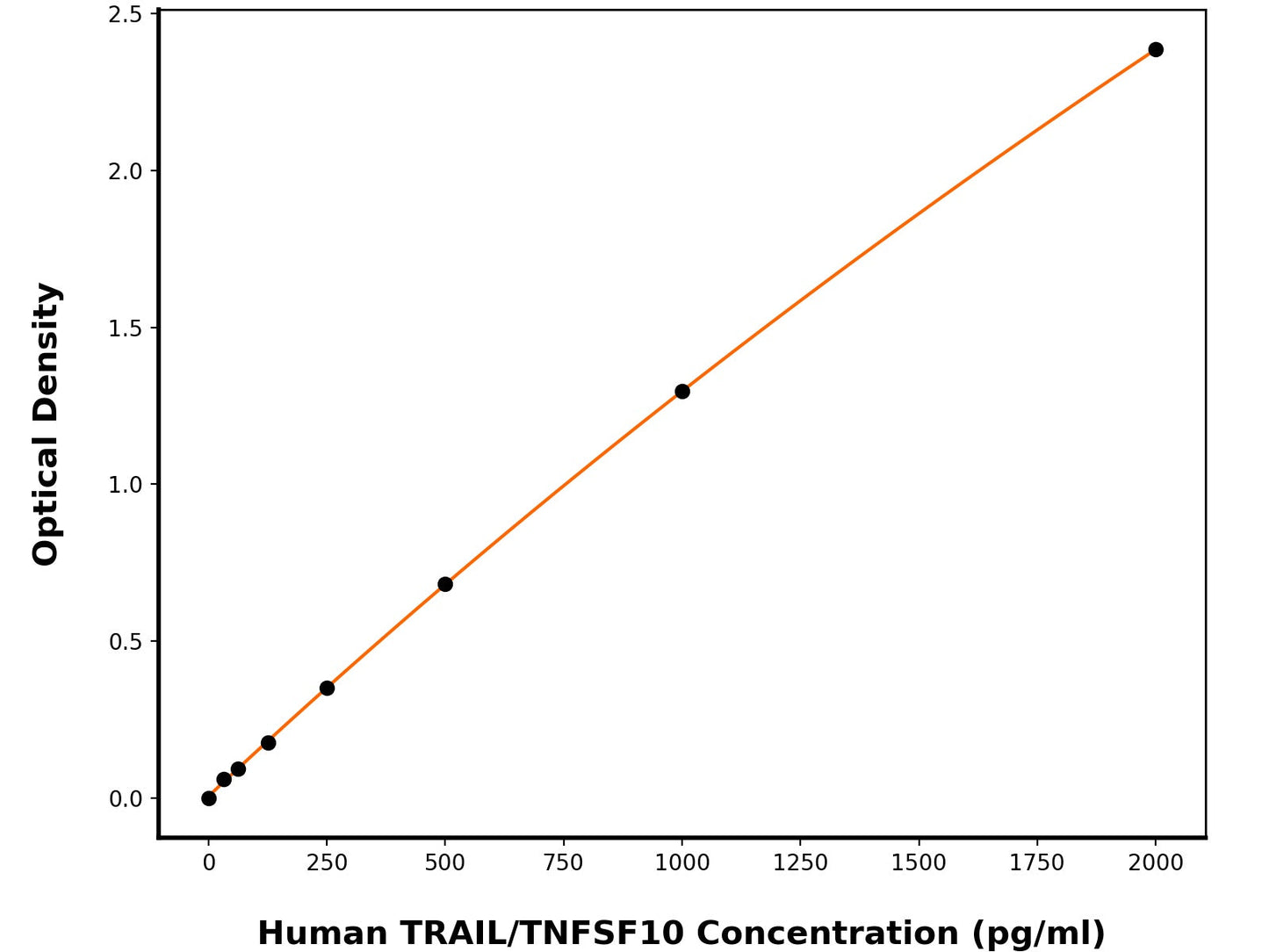1
/
of
1
Human Tumor Necrosis Factor Ligand Superfamily Member 10 (TNFSF10) ELISA Kit
Human Tumor Necrosis Factor Ligand Superfamily Member 10 (TNFSF10) ELISA Kit
This ELISA kit is designed to detect Human Tumor Necrosis Factor Ligand Superfamily Member 10 (Human TNFSF10). The assay plate has been pre-coated with mouse anti-Human TRAIL monoclonal antibody. When the sample containing TRAIL is added to the plate, it binds to the antibodies coated on the wells. Then, a horseradish peroxidase conjugated mouse anti-Human TRAIL Antibody is added to the wells and binds to TRAIL in the sample. After washing the wells, substrate solutions are added, and the color intensity is directly proportional to the amount of Human TRAIL present. The reaction is stopped by adding an acidic stop solution, and the absorbance is measured at 450 nm.
Catalog No:
BPE078
Regular price
$624.00 USD
Regular price
$480.00 USD
Sale price
$624.00 USD
Unit price
/
per
2 weeks
Couldn't load pickup availability
Product Details
Species Reactivity
Human
Sensitivity
12.4 pg/mL
Detection Range
31.25-2000 pg/mL
Sample Type
Serum, plasma, cell culture supernates
Incubation(s)
3.5 hour(s)
Research Areas
Cancer, Cell Biology, Cardiovascular
Background
Tumor necrosis factor ligand superfamily member 10 (TNFSF10), also known as TNF-related apoptosis-inducing ligand (TRAIL), Apo-2 ligand, and CD253, is a cytokine that belongs to the tumor necrosis factor (TNF) ligand family. TNFSF10 / Apo-2L / CD253 functions as a ligand that induces the process of cell death called apoptosis. TNFSF10 / TRAIL shows homology to other members of the tumor necrosis factor superfamily. As one member of the cluster of differentiation system, TNFSF10 / CD253 is commonly used as cell markers in Immunophenotyping. Different kinds of cells in the immune system can be identified through the surface CD molecules which associating with the immune function of the cell. There are more than 320 CD unique clusters and subclusters have been identified. Some of the CD molecules serve as receptors or ligands important to the cell through initiating a signal cascade which then alter the behavior of the cell. Some CD proteins do not take part in cell signal process but have other functions such as cell adhesion TNFSF10 / Apo-2L / CD253 / TRAIL binds to several members of TNF receptor superfamily including TNFRSF10A / TRAILR1, TNFRSF10B / TRAILR2, TNFRSF10C / TRAILR3, TNFRSF10D / TRAILR4, and possibly also to TNFRSF11B/OPG. The activity of TNFSF10 / TRAIL may be modulated by binding to the decoy receptors TNFRSF10C / TRAILR3, TNFRSF10D/TRAILR4, and TNFRSF11B/OPG that cannot induce apoptosis. The binding of this protein to its receptors has been shown to trigger the activation of MAPK8 / JNK, caspase 8, and caspase 3. Alternatively spliced transcript variants encoding different isoforms have been found for this gene. Cancer Immunotherapy Immune Checkpoint Immunotherapy Targeted Therapy
Shipping Condition
Shipped on cold gel packs.
Storage Condition and Shelf Life
This product can be stored at 2-8C.
Analyte
Tumor necrosis factor ligand superfamily member 10
Regulatory Status
For Research Use Only

